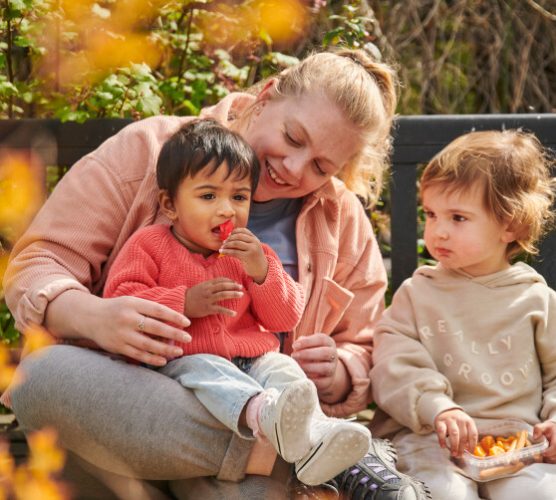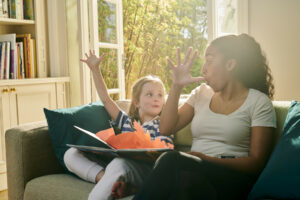Babies are born social beings, and they begin to develop social skills from the moment they enter the world. In the first two years of life, babies go through a rapid process of development, and their social skills are no exception.
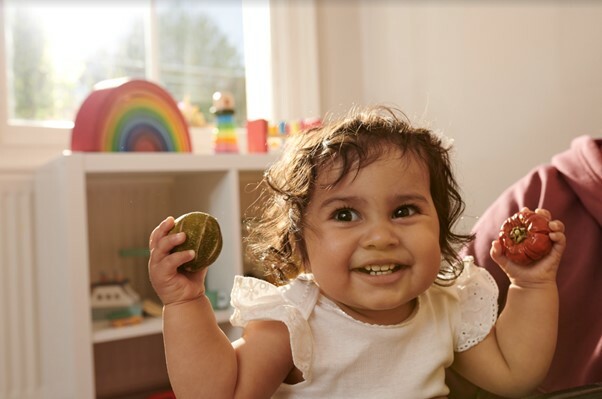
Here is an overview of when babies start socialising, what social skills they develop in their first two years, and how we can teach them social skills.
Why are social skills so important?
Social skills are essential for babies to develop as they help them form strong and positive relationships with those around them. They contribute to a baby’s overall development and well-being. For example, research has shown that babies who have strong social skills are more likely to have better academic and social outcomes later in life. Super important, right?
When do babies start socialising?
Babies start socialising from the moment they are born. They are born with the ability to recognise faces, and they are especially drawn to the faces of their caregivers. As they get older, they become more and more interested in the people around them and begin to engage in an increased amount of social interactions, which can be a wonderful time for all!
What social skills do babies develop in the first 2 years?
In their first two years, babies develop a whole heap of social skills. Some of the most important social skills that babies develop during this time include:
- Communication: communicating through facial expressions, gestures, and vocalisations.
- Empathy: recognising and responding to the emotions of others. They may cry when they see someone else crying, or they may try to comfort someone who is upset.
- Sharing: sharing toys and other objects with others.
- Cooperation: Working together with others and learning to take turns.
- Problem-solving: Solving problems and findings solutions to challenges.
What is my role as the caregiver in social skills development?
Caregivers play a crucial role in helping babies develop social skills. They can create a supportive environment that encourages social interactions and positive social experiences. Here are our top tips for caregivers on how to support the development of their little ones’ social skills:
- Respond to your baby’s cues: Pay attention to your baby’s facial expressions, gestures, and vocalisations and respond to their cues and engage with them in social interactions.
- Play with your baby: Play is a really important way for babies to learn and practice social skills. Be sure to play with your baby and encourage them to play with others.
- Model good social behavior: Show your baby how to behave in social situations by modeling good social behavior yourself. For example, be consistent with your use of pleases and thank yous around your baby in order for them to learn the social importance of such little words and phrases.
- Encourage empathy: Help your baby to understand and respond to the emotions of others by talking and learning about emotions and encouraging them to comfort others who are upset by direct modeling the appropriate behaviors.
- Encourage cooperation: Encourage your baby to work with others and take turns. For example, you can play games that require cooperation, such as pat-a-cake or peek-a-boo. The classics!
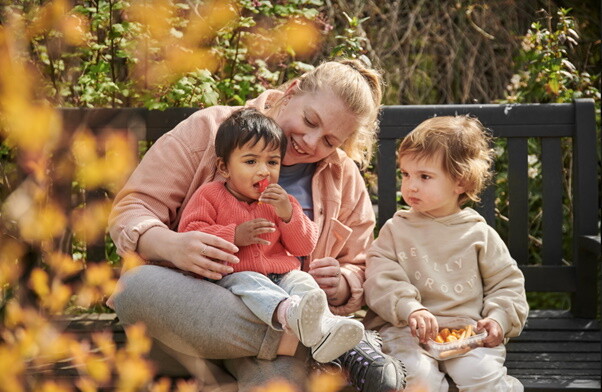
What role does play have in the development of social skills?
Play is an important way for babies to learn and practice key social skills. There are different types of play that are beneficial for social skill development, including:
- Independent play: Independent play is when a baby or child plays alone with the caregiver nearby. It allows babies to explore and learn about the world around them. It also helps them develop their own interests and sense of self.
- Parallel play: Parallel play is when babies play alongside each other, but they are not necessarily interacting with one another. This type of play is an important stepping stone to more interactive play in the future, it helps babies learn to share space and toys with others.
- Interactive play: Interactive play is when babies actively engage with one another, such as taking turns, sharing toys, and communicating through facial expressions and gestures. It helps babies learn to cooperate, share, and successfully communicate with others.
Here are a few ideas of really easy play activities that you can do with your little one to support their social skills development:
- Rolling a ball back and forth while talking about what you are doing as you are playing the sharing activity together. “My turn, your turn” is simple, yet effective direct modeling.
- Peek-a-boo. The classic and super simple game that helps babies learn about object permanence and how to communicate with others through facial expressions and gestures.
- Play hiding games with stuffed animals or toys under a blanket or tea towel. Hunt for the toy together and show surprise and delight when you find it.
- Chat with your little one by asking them questions and waiting for a response as though you are in a conversation. Mimic their response, which may be a gurgle, legs kicking, or a laugh. Repeat this several times if the baby is interested in maintaining the responses.
- When going about your daily tasks, narrate your actions as you do them, using a variety of words and voice tones. Show and label your emotions. Let them mimic you.
What role do social interactions play in social skills development?
Social interactions are really important for helping babies develop key social skills. As a caregiver, you can create opportunities for social interactions by:
- Engaging in face-to-face play: Face-to-face play allows babies to make eye contact and encourages them to engage with others in a more direct way.
- Encouraging social play: Encourage your baby to play with others, such as siblings or other children in the neighborhood.
- Participating in group activities: Group activities, such as playgroups or music classes, provide opportunities for babies to interact with others and develop social skills.
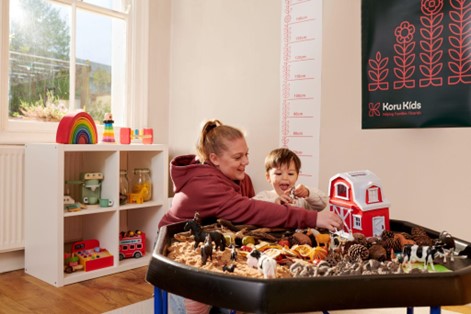
The impact of technology on social skills development
Technology can have both positive and negative impacts on the development of social skills in babies. On the positive side, technology can provide fantastic opportunities for social interactions, such as video chats with distant family members.
On the negative side, technology can limit face-to-face interactions and reduce opportunities for social skill development. You can support social skill development by using technology in moderation and encouraging face-to-face interactions and play.
The role of culture in social skill development
Cultural differences can also play a part in affecting social skill development. For example, some cultures may place a greater emphasis on social interactions and group activities, while others may place a greater emphasis on individual activities. Caregivers can support the development of social skills in a culturally sensitive way by respecting and embracing the cultural values and practices of their community.
Summary
In conclusion, babies are born with the ability to socialise, and they go through a rapid process of development in their first two years. During this time, they develop a wide range of social skills, including communication, empathy, sharing, cooperation, and problem-solving.
You can help babies develop these skills by responding to their cues, playing with them, modeling good social behavior, encouraging empathy, and encouraging cooperation. Babies who are exposed to more social interactions and positive social experiences are more likely to develop strong social skills. This in turn sets them up for a fantastic start in life.
